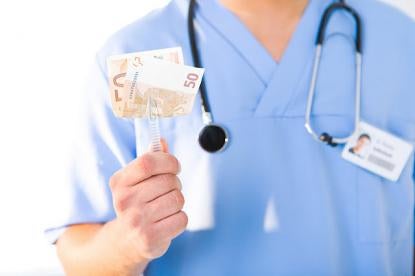As reported in yesterday’s Boston Globe, compared to national averages, Massachusetts physicians are less likely to receive payments or items of value from pharmaceutical companies and less likely to be heavy prescribers of brand-name drugs. The Globe article relates to a ProPublica analysis of physician prescribing patterns and payments from the pharmaceutical industry. To perform the analysis, ProPublica researchers tapped into two important sources of information about prescribers collected nationwide: information on payments received by physicians from pharmaceutical and device manufacturers (available through the Open Payments website) and Medicare Part D prescribing data. The analysis was limited to data from both sources for 2013 and 2014 (with only limited data available from Open Payments for 2013).
Overall, the analysis found that doctors who receive payments from pharmaceutical companies prescribe a higher percentage of brand-name medications than those who do not. Additionally, those who receive greater payments tended to prescribe more brand-name medications. In Massachusetts, however, physicians were less likely to receive any payments from pharmaceutical and device companies than the national average. Additionally, Massachusetts physicians were less likely to prescribe high rates of brand-name medications, whether or not they received payments from industry sources. In Massachusetts, 3.7% of doctors who accepted payments from industry prescribed brand-name drugs at high rates, whereas 2.6% of doctors who did not accept payments prescribed branded drugs at high rates.
One potential explanation for the difference in Massachusetts, as pointed out by Dr. Aaron Kesselheim of Harvard Medical School, is the prevalence of academic medical centers in Massachusetts. Many of these institutions limit or prohibit gifts from industry to their physicians. Though not addressed in the article, state laws may also play a role in the number of physicians accepting payments from industry. Massachusetts has a Gift Ban Law (M.G.L. c. 111N) prohibiting many types of payments from pharmaceutical companies to prescribers. Two of the other five states with the lowest percentage of physicians receiving payments from industry, Vermont and Minnesota, have also enacted state laws to limit such payments. Maine, also among the five states with the lowest rates of industry payments, previously had a payment disclosure law that was repealed in 2011.
Prescribers, hospitals, and health systems need to be aware that numerous groups are using the Open Payments and the Part D prescribing data to analyze prescribing practices of both groups of physicians and individual physicians. What was once a black box has now been opened to the public eye.



 i
i

